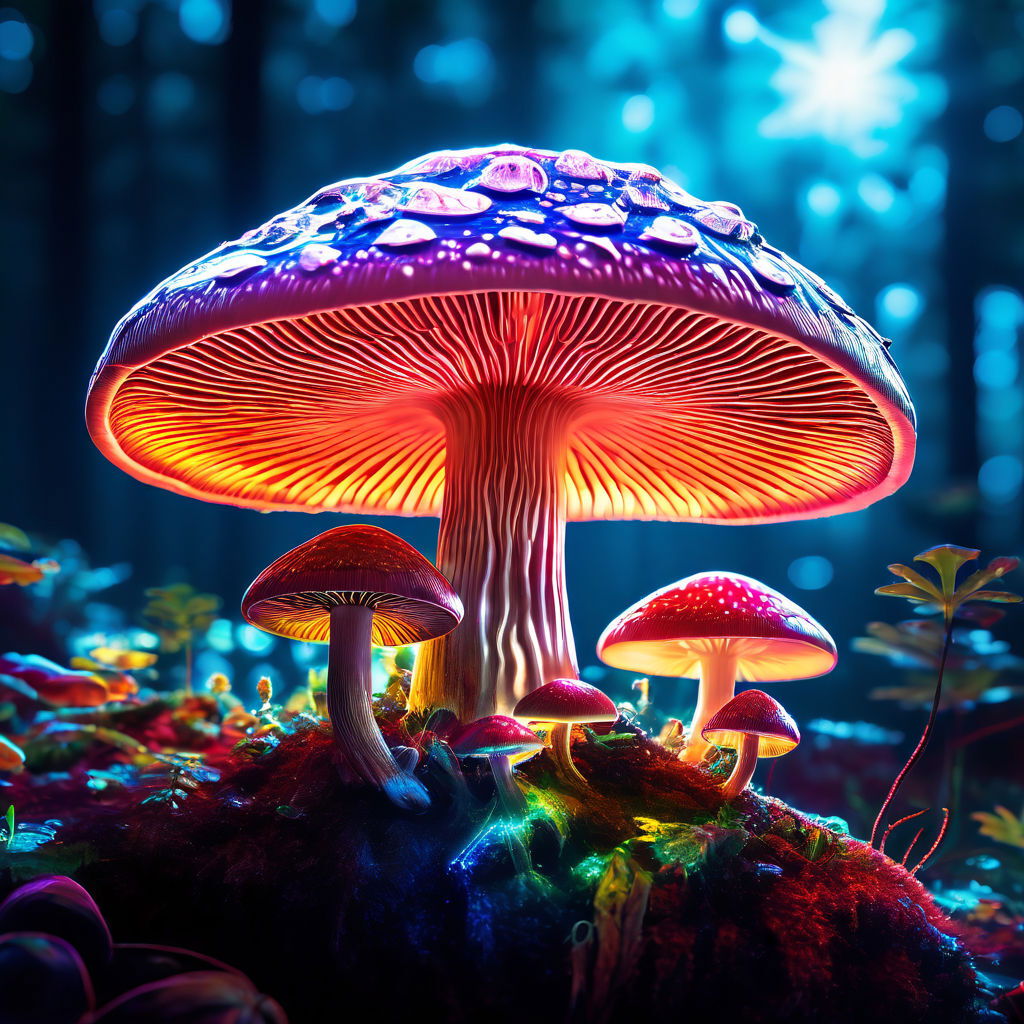Mushrooms, Psychedelics, and Healing : Holosophy
In recent years, the intersection of psychedelic substances and mental health treatment has garnered increasing interest from the scientific community and the public alike. Among these substances, psilocybin, the active compound found in "magic mushrooms," stands out for its potential to profoundly alter consciousness and offer therapeutic benefits, particularly in treating depression and other mental health disorders.
Magic mushrooms have been used for centuries across various cultures for spiritual and healing purposes. In the modern context, psilocybin induces a psychedelic state characterized by alterations in sensory perception, emotional shifts, and a distinct change in the understanding or perspective of one’s self. Users often report experiencing a sense of connectedness, dissolution of ego boundaries, and profound mystical or spiritual experiences.
Research into psilocybin has expanded, particularly in the realm of psychological disorders. A landmark study conducted by Johns Hopkins University showed that psilocybin therapy significantly improved life satisfaction and decreased depression and anxiety in individuals with life-threatening cancer diagnoses. These benefits were not only rapid but sustained over several months post-treatment.
Clinical trials have consistently demonstrated the efficacy of psilocybin in treating major depressive disorder (MDD). In controlled settings, patients receive a dose of psilocybin while under the supervision of medical professionals. This controlled environment allows individuals to navigate the psychedelic experience with support, maximizing therapeutic outcomes.
The implications of these effects are profound. By disrupting the DMN and encouraging new neural connections, psilocybin can provide individuals with a new perspective on old problems. People who undergo psilocybin therapy often describe the experience as one of the most significant in their lives, likening it to a spiritual awakening. This can be particularly transformative for those who suffer from conditions like depression, where persistent negative thought patterns can be pervasive and difficult to break.
Magic mushrooms carry a promise that stretches beyond traditional pharmaceuticals, offering a unique and profound way to treat mental illness by transforming consciousness. With ongoing research and changing laws, psilocybin may soon become a standard part of therapeutic practices, offering new hope and healing to those who need it most. As our understanding of these substances grows, so too does our potential to harness their remarkable benefits for mental health and wellbeing.
--

Magic mushrooms, through their active compound psilocybin, have long been reported by users to induce experiences that feel profoundly enlightening and transformative. These experiences often extend beyond personal healing, touching on a sense of universal connectedness that can feel almost holographic in its depth and complexity.
The idea that the universe is holographic in nature—that every part contains the whole—mirrors many of the reports from individuals who have undergone psilocybin experiences. Users frequently describe a sensation of oneness with the universe, where the boundaries between the self and the external world blur, revealing a web of infinite connections that underpin reality.
This sensation can be aligned with theories in physics and cosmology that suggest the universe is fundamentally interconnected. The concept of non-locality in quantum physics, for example, posits that particles can be linked across vast distances, a phenomenon that Einstein famously referred to as "spooky action at a distance." Similarly, during a psychedelic experience, the sense of time and space can be altered, giving individuals a direct, experiential understanding of these complex, abstract theories.
In the realm of psychology, Carl Jung's idea of the collective unconscious may also find echoes in the psychedelic experience. Jung theorized that there is a part of the unconscious mind shared among beings of the same species, containing the ancestral memories and archetypes common to all human life. Psilocybin experiences often involve encounters with archetypal images or themes, which can provide individuals with insights into shared human experiences and a deeper understanding of their own psyche.
Spiritually, these experiences are often described as mystical, providing a profound sense of peace, transcendence, and a feeling of divine presence or unity with all things. This can lead to what is often described as a spiritual awakening, where individuals re-evaluate their understanding of themselves and their place in the universe.
The 'magical' component of magic mushrooms might not only pertain to their ability to alter consciousness but also their potential to reveal the deeply interconnected nature of the universe. Whether through avenues of mental health, spiritual enlightenment, or profound personal insight, psilocybin stands as a potent catalyst for awakening to the intricate and holographic magic of the universe we inhabit. As we continue to explore these frontiers, we may find that the key to understanding our place in the cosmos has been within us all along, waiting to be unlocked by these ancient and powerful fungi.
TRUE HOLOSOPHY!
